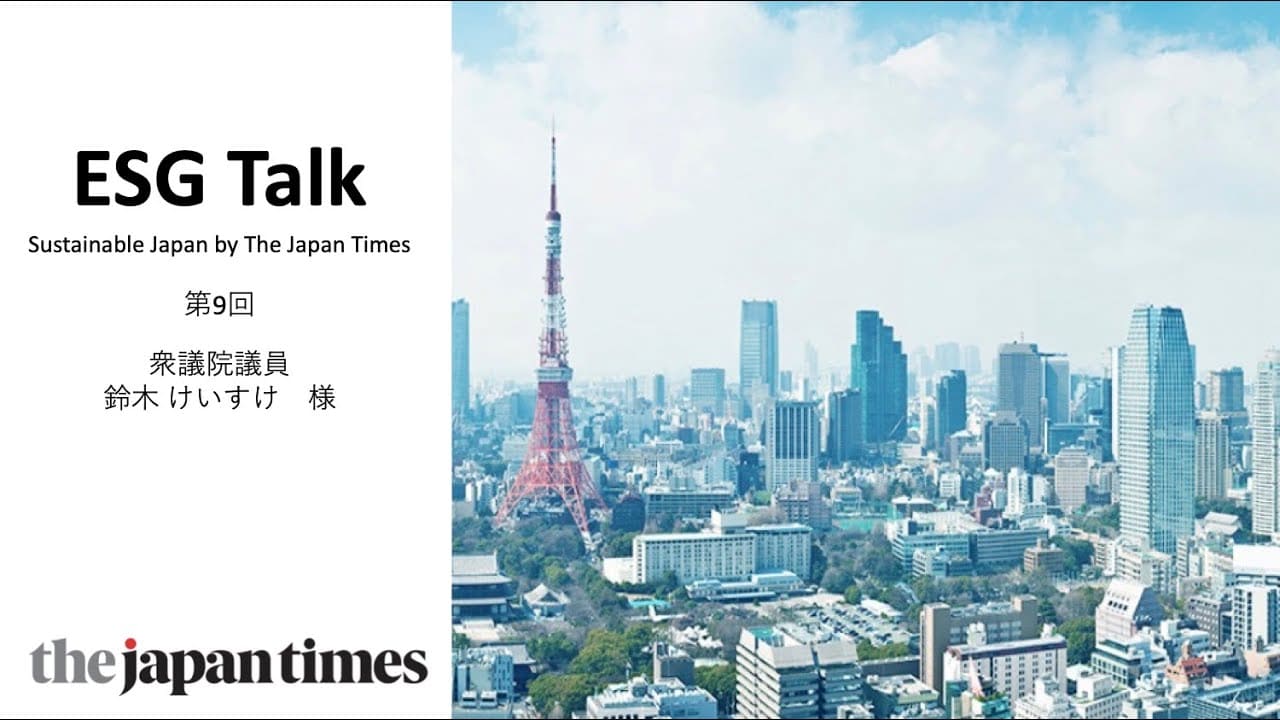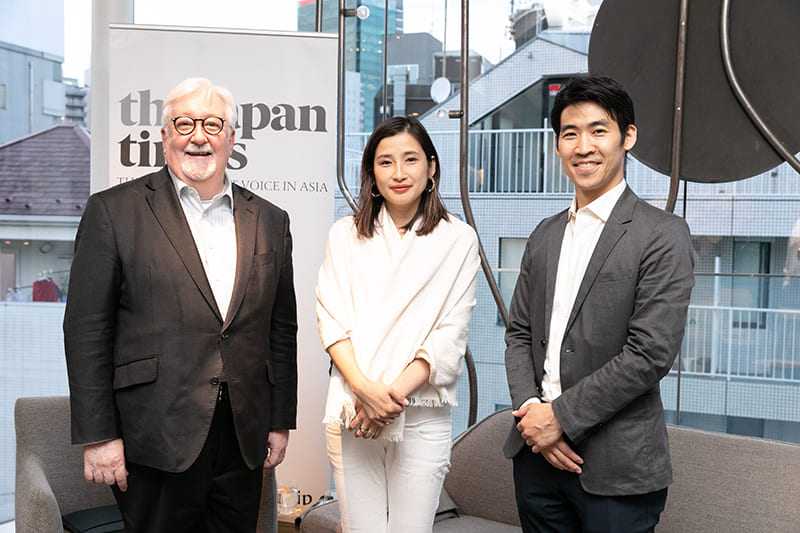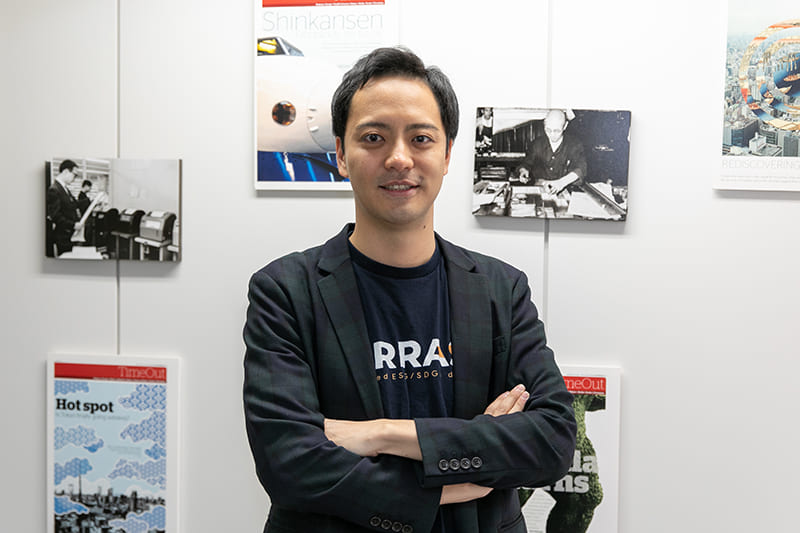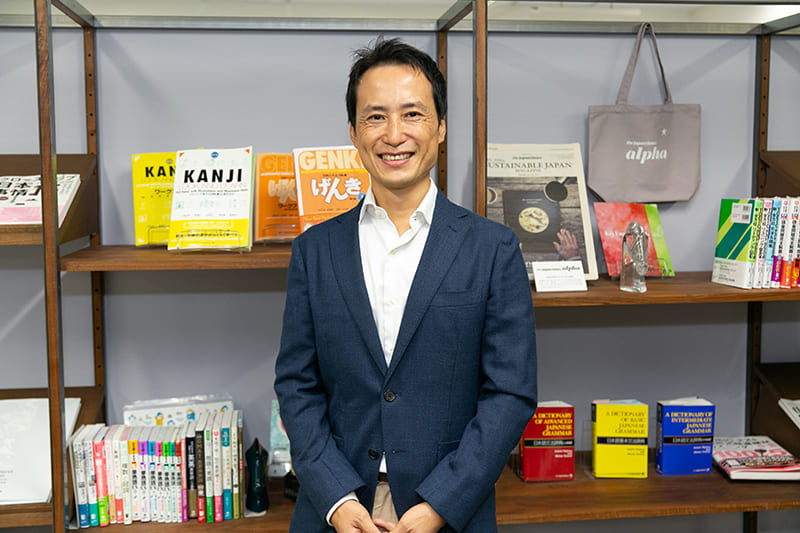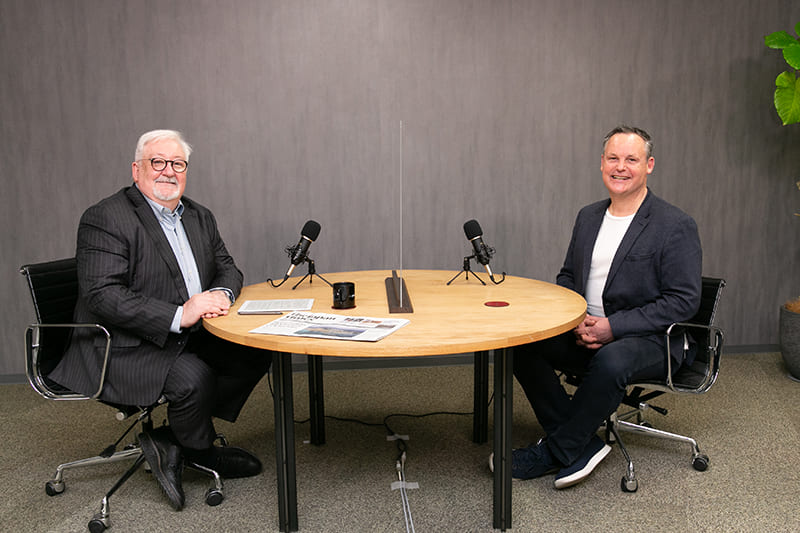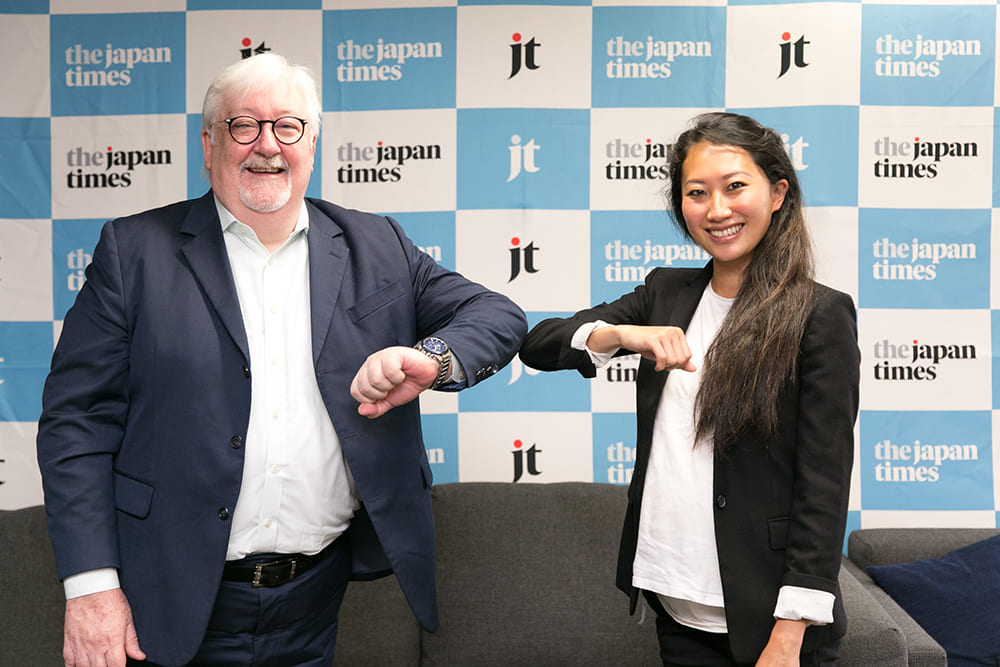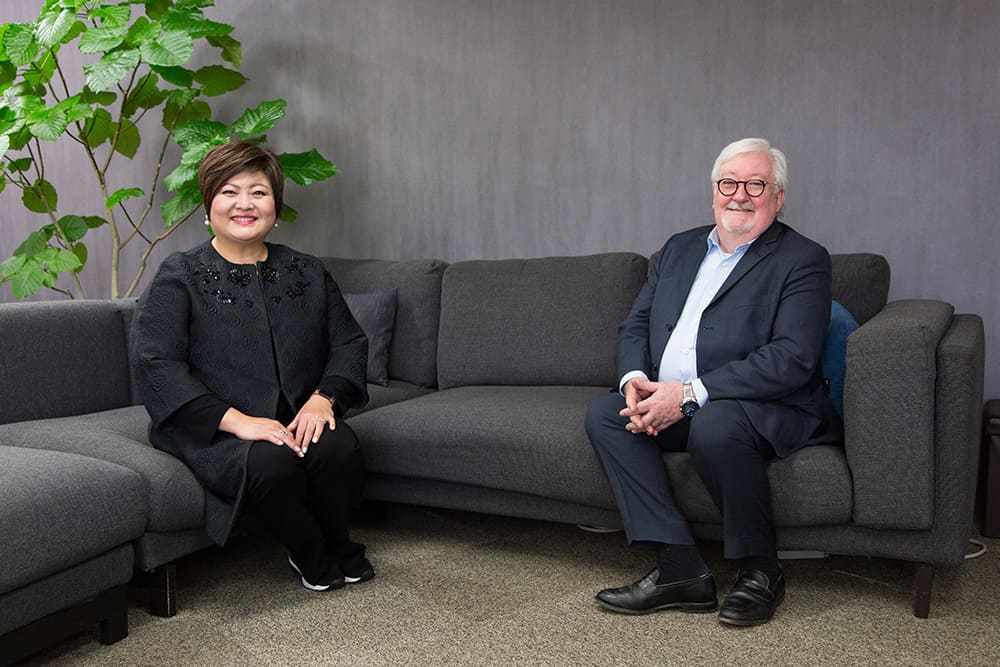October 22, 2021
Luke Date educates for collective climate impact
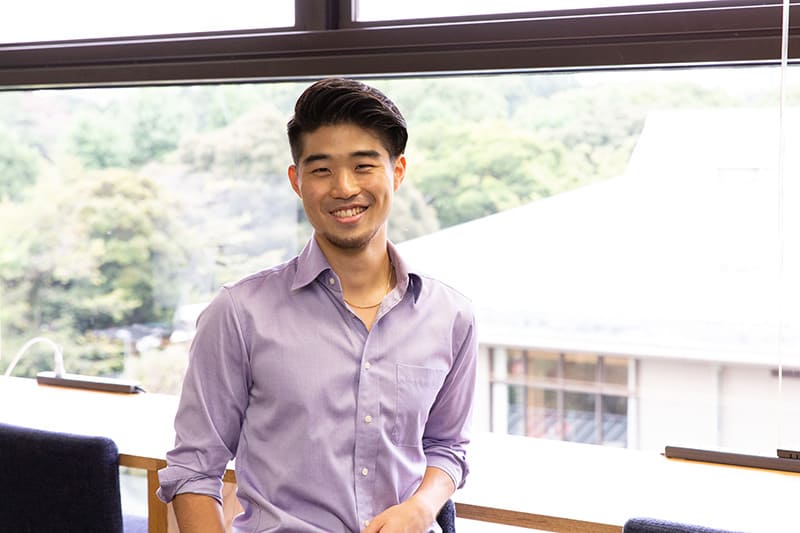
Five years ago, a Japanese college student participated in a beach cleanup in Chiba. As he squinted at the early morning wind and collected the detritus of a hundred nations, he had an epiphany: If no single country can fix this problem, how could an individual, or even a huge corporation? The only way forward, he decided, was collectively.
The student’s name was Luke Date. That moment on the beach, tongs in hand, was when he started his impressive career in sustainability consultancy. Shortly after graduation Luke started his own company, Uminari. Since then he has given TED talks, worked with the U.N. and advised dozens of Japanese corporations on their sustainability strategies. He was the latest guest in the Japan Times Sustainability Roundtable interview series, where his conversation provided a glimpse of the future of sustainability.
A very young guest
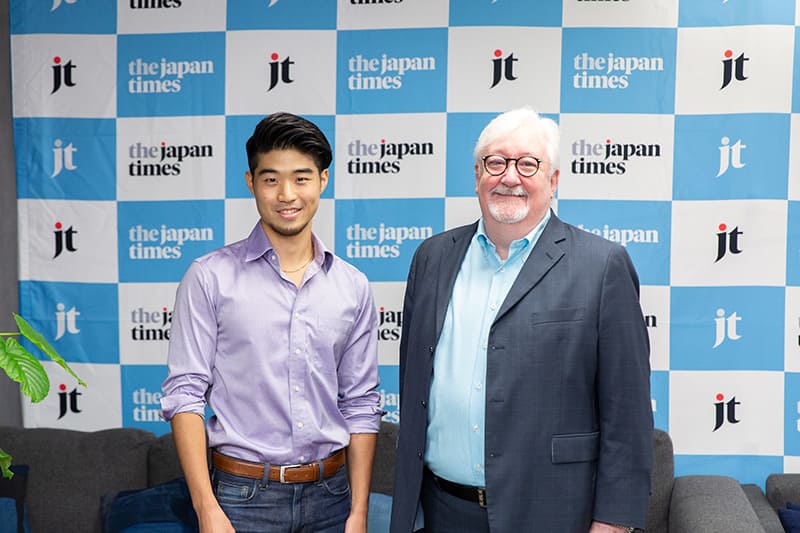
Hosted by veteran PR leader Ross Rowbury and viewable on YouTube, the Roundtable has been going strong for over a year now, amassing a treasure trove of interviews in English of Japan-based change agents. Throughout the series, sustainable finance has been frequently discussed, often by enthusiastic but, shall we say, more silverhaired figures in finance. As a 25-year-old wunderkind, Date was a refreshing contrast to those earnest oji-sans. It was fun to see Rowbury gently quiz and cajole this new leader on his background, efforts and ambitions.
During their conversation, Date often returned to a main theme of collective impact. “This plastic problem cannot be solved by a sole sector, and neither can pollution,” he said. “So collective impact is really needed.” His professors at Rikkyo University drove the point home. “I took a class on CSR and CSV” — corporate social responsibility and creating shared value — “but the professor showed us that CSR is not enough. We need to make an impact by cooperating with other companies, different kinds of sectors beyond industry. That became the idea for me, to picture the concept of collective impact.”
Main characters for future
So how do Date and Uminari achieve this impact? He explained to Rowbury that his mission is split into two efforts: the education of coming generations, and the guidance of current business leaders. The education effort takes the form of workshops. “We are especially focusing on Gen Z and even younger, like junior high school students,” he said. “We need to have insight of the future. In that sense, we need to communicate with the students, who are the main characters of the future.”
His efforts in education have evolved during the last four years. “When we started in 2017, the students were saying ‘wow’ — they didn’t know so much about the problems,” he said. “But now, after 2019, they are already learning about ESGs [environmental, social and governance efforts] as part of their school curriculum. Unfortunately, the younger generation cannot build the solutions themselves. They need help — they need the help of today’s leaders. So we … try to connect those older generations, and those industry sectors, connect them to Gen Z.”
Date’s focus on education is common for Japan’s sustainability advocates. Elementary schools in Japan frequently allow such activists into their classrooms so that very young children can be convinced that global warming is caused by humans. Date’s passion for teaching was clear. “We make sure any class is interactive,” he said. “The concept and essence of this approach is about communication, not education, with the future generation. And that is very smart way to get a real insight of the next generation. And that can be very effective material for the companies too.”
Rowbury was fascinated to hear about Uminari’s educational efforts. He pointed out that being so involved in schools made Date a kind of authority on the coming generation, and that such an understanding would be very valuable to corporations. Date agreed, saying: “Companies are looking at the next generation, who are the future customers. The right way to observe the next generation is that they have the insight into the macroenvironment — the economy, the market. They will build the future. A long-term perspective will not see the next generation as a potential customer, but as a key player of the future.”
Strategy, communication
The second part of Date’s efforts have been in corporate strategy. This was essentially born from the barriers set up for young nonprofit organizations in Japan. “The biggest challenge we ever had was fundraising,” he said. “One reason overseas nonprofit organizations are very active is the form of their entities. There is a form called CIC,” or community interest company, in the U.K. “They are a nonprofit, but they can still have investment. But Japan does not have this system, nor a culture of donation. It’s very hard for a young organization to access the government and get funding grants.”
So instead of chasing impossible-to-access grants, Date has helped existing corporations manage their own, often disjointed, efforts at sustainability. Rowbury asked if the presence of ESG badges on the lapels of so many corporate leaders has helped his efforts. Date sadly shook his head and said: “Just wearing an ESG badge can be controversial. … A lot of young people will see that and say, ‘Oh, this is just green washing.’ And that’s partly true. Promoting sustainability is not about wearing, it’s about acting.” He looked down at his shirt. “I don’t wear it, by the way.”
The biggest challenge corporations have with their efforts is coordination and communication, both of which Date assists in. “I am really focusing on building communication within a corporation,” he said, “to build a concrete strategy. Major corporations have existing divisions for sustainability. But I feel like they are very isolated within their organization … They know about the concept of sustainability, but when they try to reach a deeper sense of sustainability, or translate it into financial strategies, they cannot understand the language. So we are mainly about building a project or agile team across the organization.”
Beaches and boardrooms
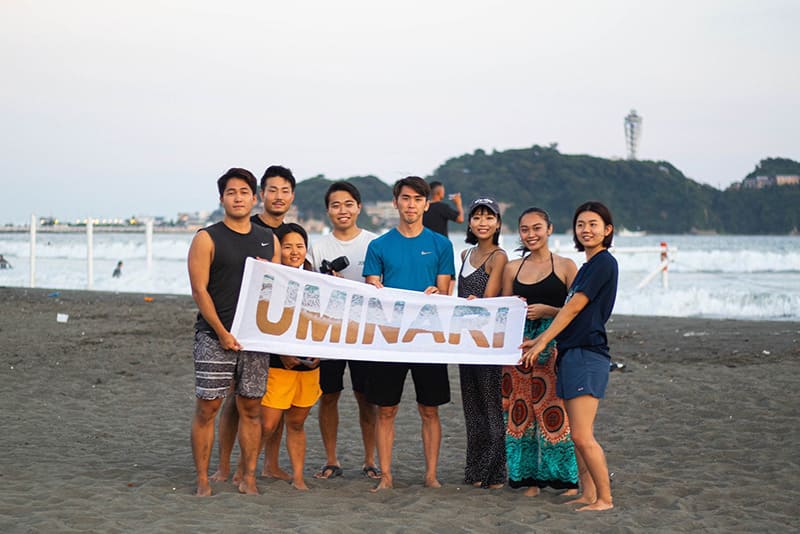
Date is still doing beach cleanups. Once a week, he is still out in Chiba, picking up the plastic that has floated across the ocean. He is part of the new generation of corporate Japanese eco-activists, whose devotion to sustainability is a career decision. Such activists are now in every school, teaching children that humans cause global warming. They are now employed in every corporation, helping find profits from sustainable practices. They are no longer rebels who challenge polluting industries; instead they are an industry unto themselves. The more global warming is accepted as fact, the more government regulations are passed, the more his services will be in demand. In that sense, the future for him looks very sustainable indeed.

